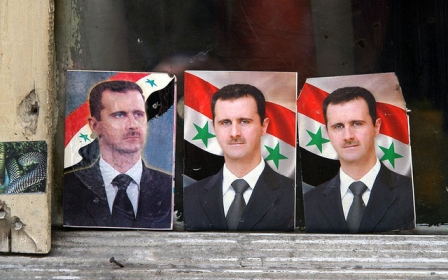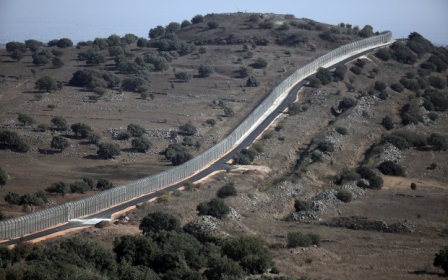EU sanctions target 'middleman' between Assad government, IS oil

The European Union has published a list of new sanctions targeting supporters of Syrian President Bashar al-Assad.
The latest list, made public on Saturday, indicates that Assad associates have been helping Islamic State to run oil and gas facilities it has seized in Syrian territory.
Assad’s government has long been accused of buying oil from IS, adding to the group’s revenue stream, which has been estimated at up to $6m a day.
However, the new sanctions are the first indication that Assad’s allies could be jointly operating facilities alongside the militant group.
George Haswani, a Greek-Syrian business magnate said to have “direct access” to Assad, was top of the newly published list.
Haswani owns Hesco, which describes itself as “one of the leading engineering, contracting, construction and trading companies in Syria”.
Hesco also runs a gas plant in the central Syrian town of Tabqa, which came under IS control in August 2014.
Despite the town’s occupation, the plant continues to supply areas under Assad control – the plant is jointly run by Hesco and IS, a diplomat close to the EU sanctions told the Financial Times.
Commenting on the new sanctions, UK Foreign Secretary Philip Hammond said the EU would be targeting “individuals supplying oil to the [Assad] regime, including George Haswami, a middleman buying oil from ISIL [IS] on behalf of the regime."
“This listing gives yet another indication that Assad’s ‘war’ on ISIL is a sham and that he supports them financially."
In addition to the Tabqa gas facility, other oil and gas fields in IS territory are thought to continue to operate thanks to workers paid by the Syrian oil ministry, the Telegraph reports.
Syria’s embattled president is publicly opposed to IS, which has seized control of huge swathes of Syrian territory in the last year, and has expressed a wish to be a part of the US-led military coalition against the group.
However, reports that individuals close to Assad are not only helping siphon funds to IS by buying their oil but are also helping the militants to extract Syria’s natural resources will further complicate the West’s relationship with Syria’s president, whose use of destructive barrel bombs in civilian areas is well-documented.
In a marked policy shift, the UN’s envoy to Syria, Steffan de Mistura, said last month that Assad is “part of the solution” in the country, where four years of fierce fighting have led millions to flee.
De Mistura stressed that “the only solution is a political solution,” warning that the continuing chaos can only benefit IS.
Analysts have speculated for months over the possibility of a softening in the West’s stance towards Assad, whom they have consistently called on to step down.
Stay informed with MEE's newsletters
Sign up to get the latest alerts, insights and analysis, starting with Turkey Unpacked
Middle East Eye delivers independent and unrivalled coverage and analysis of the Middle East, North Africa and beyond. To learn more about republishing this content and the associated fees, please fill out this form. More about MEE can be found here.




